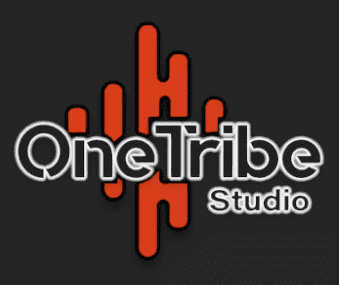Alternative financing for music
The evolution of financing needs in the music industry has given rise to a constantly evolving financial landscape, requiring the exploration of alternative solutions to traditional financing.
In this context, this article aims to take a closer look at emerging models such as crowdfunding and blockchain , which offer new possibilities for artists to finance their musical projects.
The objective is therefore to understand how these new financing paradigms can respond to the changing needs of the music industry and how they can help strengthen the relationship between artists and their audience.
Crowdfunding: A New Paradigm of Collaborative Financing
The crowdfunding, or crowdfunding, has become a major tool in the musical field, allowing artists to raise funds from their audience and fans to finance their projects.
This model is based on the principle of collaboration between artists and their community, offering fans the opportunity to directly support projects that interest them.
The advantages of crowdfunding for artists are multiple, including the possibility of financing projects independently, to streng then the engagement of their audience and to benefit from debt-free financing.
Case studies of successful campaigns illustrate the effectiveness of this model, highlighting examples where artists have successfully achieved their fundraising goals thanks to the support of their community.
However, crowdfunding also has limitations and challenges to consider, such as the need to mobilize a large audience and therefore maintain engagement throughout the campaign, as well as increased competition on crowdfunding platforms.
Blockchain: The Revolution in Copyright Management and Financing
Blockchain technology offers new possibilities for financing and copyright management in the music industry.
This revolutionary technology creates immutable and transparent records of intellectual property, providing artists with a way to protect their rights and manage their music effectively.
By transforming distribution and artist remuneration models, blockchain offers significant benefits in terms of transparency, security and automation of payments.
Examples of platforms using blockchain to finance musical projects highlight the opportunities offered by this technology, therefore allowing artists to raise funds in a decentralized and transparent manner.
However, despite its advantages, blockchain also presents challenges, such as technical complexity and the need for widespread adoption to maximize its potential in the music industry.
Other Alternative Models
Besides crowdfunding and blockchain, other emerging financing methods are worth exploring, such as streaming participatory and smart contracts.
These models offer innovative alternatives to traditional financing, allowing artists to engage directly with their audiences and receive fair remuneration for their work.


Selection Criteria and Good Practices
For artists wishing to opt for alternative financing, it is important to take into account certain selection criteria and follow good practices to maximize their chances of success.
Among these criteria, we find compatibility with the artistic project and financial objectives, as well as the ability to mobilize and to engage their audience.
By following best practices such as strategic planning, transparent communication and management effective campaigns, artists can therefore increase their chances of success and create enriching experiences for their audience.
Impact on the Musical Ecosystem
The introduction of alternative financing models is having a profound impact on the music ecosystem as a whole.
These new methods are changing the dynamic between artists, fans and different stakeholders in the music industry.
For example, crowdfunding strengthens the direct relationship between artists and their fans, sometimes reducing dependence on towards the major record labels.
Similarly, blockchain disrupts traditional models of copyright management, therefore providing artists with increased control on their music and their remuneration.
Upcoming Challenges and Opportunities
The future of alternative financing models in the music industry is being shaped by a series of challenges and of opportunities.
Potential challenges include government regulation, blockchain security concerns, and the risk of exhaustion. crowdfunding model.
However, these challenges also come with opportunities for continued innovation, market growth and business transformation. the way music is created, distributed and consumed.
By navigating carefully and therefore remaining open to change, the music industry can seize these opportunities to evolve towards a more inclusive, sustainable and dynamic future.


Ethics and Responsibility
The integration of new alternative financing models also raises questions of ethics and responsibility.
Artists and platforms must be transparent about how funds are used and distributed.
In addition, it is essential to guarantee fairness in the relationships between the different stakeholders, ensuring that that artists are paid fairly for their work.
By adopting ethical and responsible practices, industry players can therefore strengthen fan trust and promote sustainable and mutually beneficial collaboration.
Social and Cultural Impact
Alternative financing models also have a significant social and cultural impact.
By allowing artists to finance their projects independently, these models promote diversity and originality in music .
Crowdfunding platforms, in particular, allow artists of different origins and musical genres to find financial support from their fans, which contributes to a more diverse and representative music scene.
Additionally, these models often give fans a more active role in music creation, allowing them to directly support the artists they like.
This strengthens the connection between artists and their audiences, fostering a more engaged music community and collaborative.
Ultimately, the social and cultural impact of alternative financing models extends beyond the industry musical, therefore influencing the way music is created, shared and appreciated in society.
Conclusion
In conclusion, the exploration of alternative financing models in the music industry opens new avenues for artists, fans and industry players.
Methods such as crowdfunding and blockchain offer innovative ways to finance and distribute music, while strengthening engagement and connection between artists and their audiences.
Despite the challenges and ethical questions that remain, the future looks bright for these alternative financing models, offering opportunities for a more dynamic, inclusive and equitable music industry.
By embracing these changes and working together to overcome obstacles, we can shape a future where music is accessible to all and artists can thrive through their creativity and talent.
